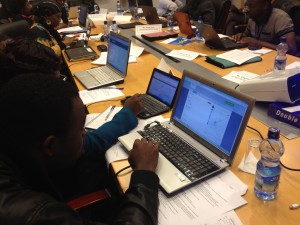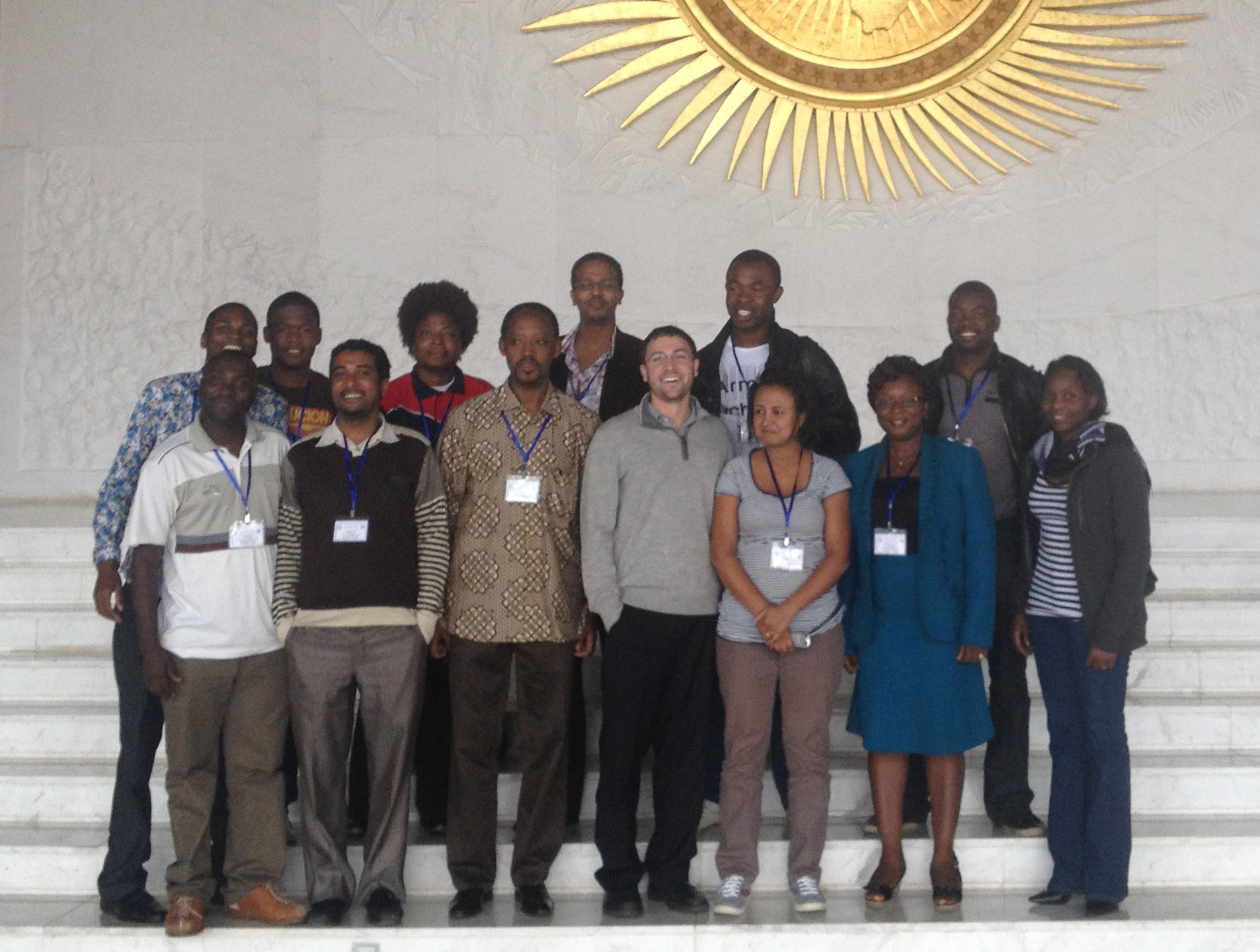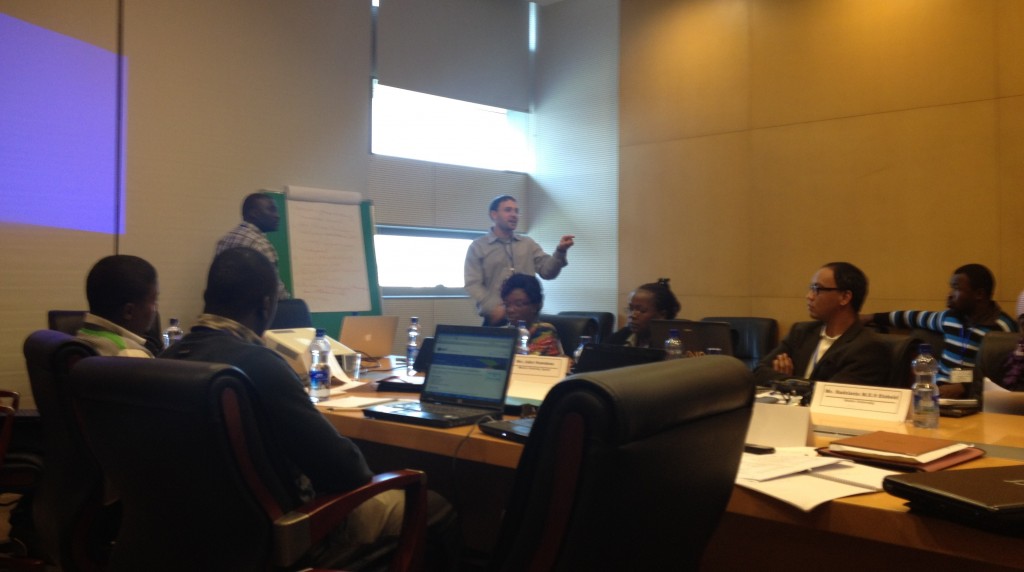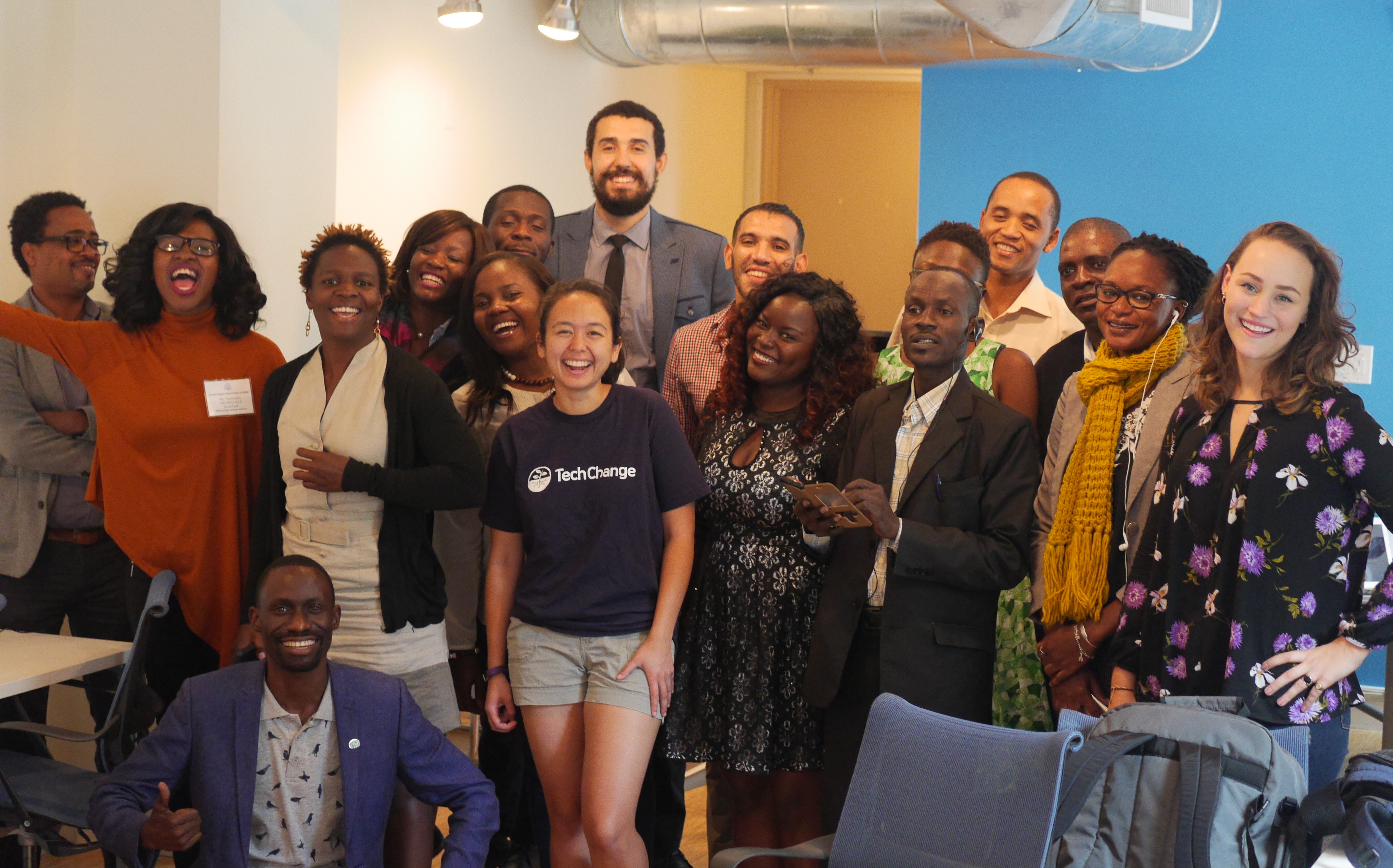This past week I had the privilege of meeting and working with fifteen fellows from across the African continent who came to Addis Ababa, Ethiopia for a two-week training organized by the UPEACE Africa Program with a supporting grant from IDRC Canada.
The training covered a variety of areas related to strengthening research capacity for governance and security in Sub-Saharan Africa and was designed to provide these fellows with critical support for carrying out their PhD work at various institutions of higher education across the continent.
Dissertation topics included:
– The Life of exiled Zimbabwean Soldiers in South Africa: Coping with the Repressed Memories of War and Political Violence
– The North & South Sudan Conflict on Abyei since 2005 Comprehensive Peace Agreement: Challenges & Prospects
– ‘Go back to your Ancestral Land’ Autochthony, Citizenship and the Quest for Return Among Internally Displaced Persons in the Rift Valley Province, Kenya
Session Overview: Mobiles, Maps, and Presentations
My sessions provided the fellows with a practical reflection on the role of technology in governance, peace and security as well as hands-on exposure to a variety tools and platforms that are being used to collect, visualize and analyze data.
On the first day, we explored FrontlineSMS, EpiSurveyor, GeoPoll, and OpenDataKit and their applications for supporting research via mobile data gathering. Activities from our online course TC105 Mobile Phones for International Development were used as a basis for this session.
 On the second day, we looked at ArcGIS Online, Ushahidi and MapBox – all mapping platforms for data visualization and analysis. As part of this session, fellows had to create their own maps, analyze advantages and disadvantages of using different platforms, and reflect on applications for their own research.
On the second day, we looked at ArcGIS Online, Ushahidi and MapBox – all mapping platforms for data visualization and analysis. As part of this session, fellows had to create their own maps, analyze advantages and disadvantages of using different platforms, and reflect on applications for their own research.
We also spent time each day working with Prezi, the web-based zooming presentation tool. Prezi was probably the most popular platform of all the ones we explored, given what seemed to be a formidable and far-reaching frustration with PowerPoint. It sounds like almost all the fellows will be transitioning to Prezi for their classroom teaching and presentations in the near future.
Technology Capacity Building: Regional Implications
In the fields of international development and peacebuilding, attention is often focused on solutions and programs that meet basic needs and deliver urgent care (disaster response, food, water, shelter, health etc). For those efforts to have effective and sustainable impacts over time, countries must also have their own robust higher education and research sectors that provide critical analysis, develop comprehensive strategies, and train future generations of leaders. That is why programs like the UPEACE Africa Program that are focused strengthening the capacity of universities to carry out this work are so important. Special thanks to Tony, Jean-Bosco, Tsion and Tewodros and all the fellows for making this a memorable experience.
While the primary focus of TechChange has been and always will be online learning,
we believe it’s important to be connected to the communities like this and support this type of in-person learning. As an organization, we look forward to participating in similar projects, trainings, and initiatives in the near future.




